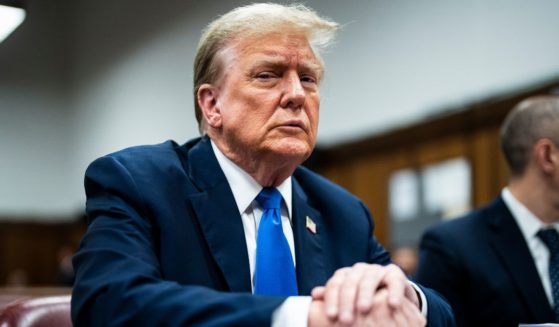Dem-Controlled City to Ignore Arizona's Second Amendment Sanctuary Law
Officials in the city of Tucson plan to ignore Arizona’s new Second Amendment sanctuary law that bars state and local governments from enforcing certain federal gun restrictions, possibly setting up a court fight as a growing number of cities and counties in the U.S. declare themselves firearm havens.
The move by Democratic Mayor Regina Romero and the City Council again puts Tucson and the Republican-led state at odds over how to regulate gun sales and use.
The southern Arizona city has long enforced stricter gun laws than the state’s, including mandating background checks for guns purchased on city property and destroying seized firearms.
Over the years, those measures have been challenged after the Republican-controlled state Legislature enacted laws barring the actions.
The new action came after GOP Gov. Doug Ducey signed a bill in April declaring Arizona a Second Amendment sanctuary.
At least 1,200 local governments have declared themselves sanctuaries since 2018.
The Arizona Daily Star reported that the state and city could be headed for a legal battle over Tucson’s June 22 resolution to continue enforcing all federal gun laws.
The resolution unanimously passed by the council proclaims that “federal laws, orders and acts that regulate firearms in a manner that is consistent with the requirements of the United States Constitution” will “remain in full force and effect” within city limits “regardless of whether those laws, orders or acts are more restrictive or prohibitive than regulations established under the laws of this state.”
Councilman Steve Kozachik introduced the resolution last month and said he believes the new state law is unconstitutional.
“Let them challenge us,” he told the Daily Star.
Kozachik said his aim is to have the law “declared unconstitutional and thrown out plain and simple, so we continue to have free rein to enforce federal gun laws locally.”
Arizona’s law prohibits the use of “any personnel or financial resources to enforce, administer or cooperate with any act, law, treaty, order, rule or regulation of the U.S. government that is inconsistent with any Arizona law regarding the regulation of firearms.”
Ducey spokesman C.J. Karamargin said Tuesday that the governor’s office expects all Arizona cities to follow the law.
“The Second Amendment is clear on our right to keep and bear arms,” Karamargin said in an email. “This law protects Arizonans’ Constitutional rights from federal overreach.”
When Ducey signed the law, he described it as “a proactive law for what is possible to come out of the Biden administration.”
Charles Heller of the gun rights group the Arizona Citizens Defense League said he doesn’t think Tucson’s resolution will do anything to change state law.
“They’re attempting to wave a flag, no matter how weak, that says they don’t like it,” Heller said.
“The federal government shouldn’t be enforcing unconstitutional laws, and we’re not going to help them,” he said.
The Western Journal has reviewed this Associated Press story and may have altered it prior to publication to ensure that it meets our editorial standards.
Truth and Accuracy
We are committed to truth and accuracy in all of our journalism. Read our editorial standards.












